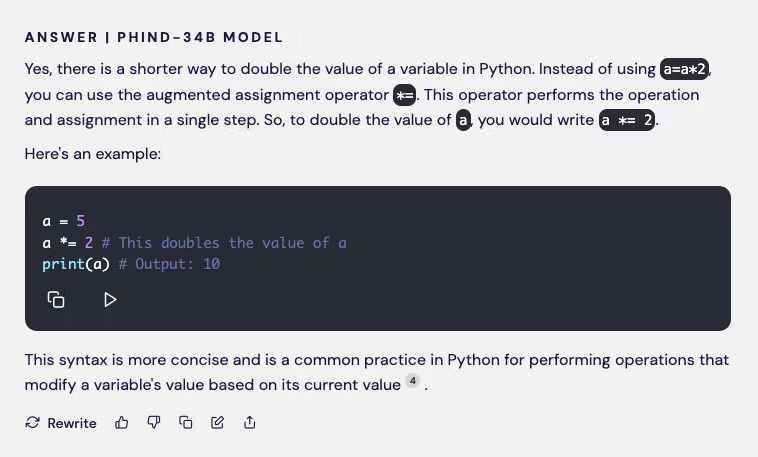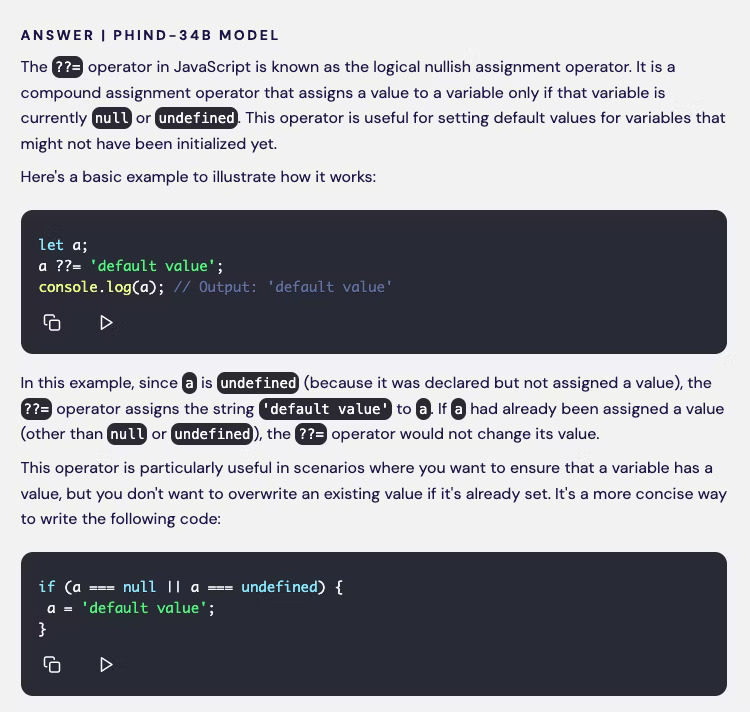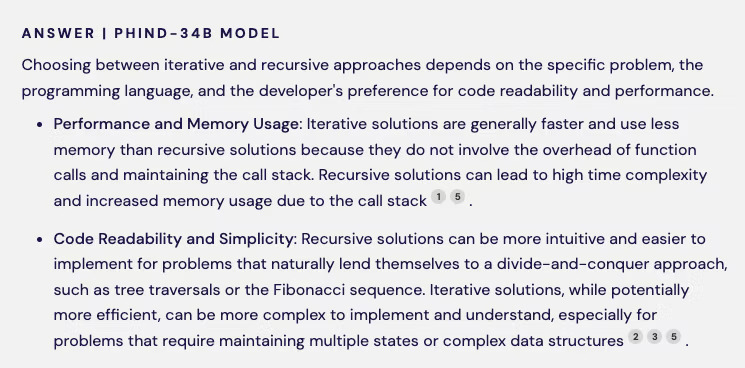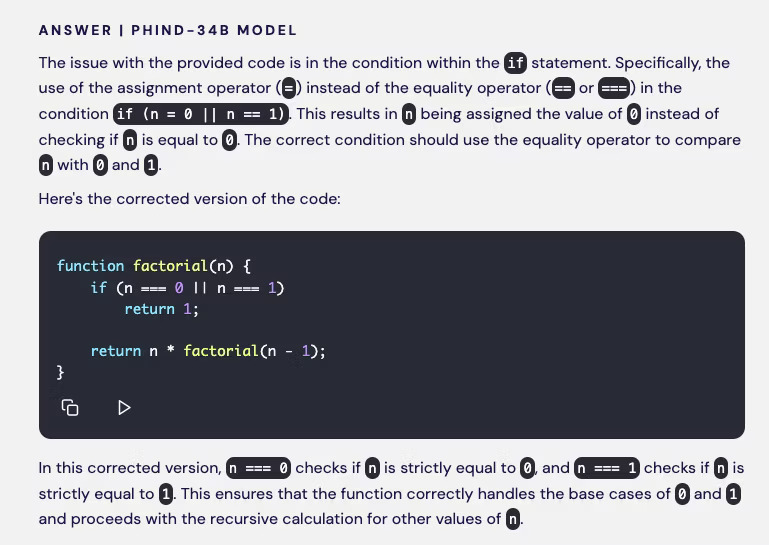Learn about Phind: The app that answers questions about coding with the power of AI
For a programmer, there are a few things that are important: Editors, build kits, and version control are all important to programming. A coding assistant like Phind could be your newest valuable addition.
What is Phind?
Think of Phind as an AI-based alternative to Stack Overflow. Instead of a small team of experts or a larger group of enthusiastic volunteers, Phind uses the power of AI.
Phind is a search engine tailored to the needs of developers. Like other AI chat apps, it charges for advanced plans but you can use Phind's basic functionality without paying. This default free plan uses a model called Phind-34B that delivers promising results.
How to use Phind?
Visit the Phind web app and you'll see a minimalist search engine interface, reminiscent of Google's homepage: Type a coding-related query, press Enter , then get the results:

You can ask follow-up questions which Phind will answer in context. You can even use vague language, but Phind will still understand what you mean. For example, the author of the article asked a question that anyone new to programming might wonder:
What does a=a*2 doAnd Phind gave a helpful answer:

Next, the author asks:
is there a shorter wayAnd the answer clearly shows how Phind realized exactly what the author meant:

Tip : You don't need to worry about formatting your question perfectly. Punctuation, capitalization, misspellings; Phind doesn't care about these things!
How good is Phind's answer?
All well and good, but how does Phind actually work? The author tested it with a series of challenges to see if it could reasonably function as a useful coding assistant.
A very basic programming question
Basically, the author wanted to see if Phind could answer a very simple question about language syntax. This is the type of question a programmer might ask if they're using an unfamiliar language or trying to learn about a more obscure feature.
The author asked Phind:
what does the javascript ??= meanThe author intentionally chose not to include the term "operator", to make the task a little more difficult and reflect a real-world scenario. Sure enough, Phind had no problem answering this question in just a few seconds:

Feedback includes:
- Syntax explanation.
- An example of usage.
- An equivalent long-form code sample.
This is all accurate information that is valuable for study or reference. Note that the code samples link to Replit, a free code editor. Follow the link and you can run the sample code to see what it does in action.
A more in-depth code example
The author wanted to see if Phind could provide a more in-depth code sample. The author asks:
how do i write a linked list please just give me the codeLinked lists are a classic data structure that every programmer should know. That's certainly something a tool like Phind should understand and be able to answer questions about.
Fortunately, the results were very good:

This is just a small excerpt from the full code sample. In total, Phind produced 60 lines of uniquely structured C code. The author is not specifically asking about coding in C, but this language is a reasonable default since many other languages already include linked list structures in their standard libraries.
The code compiled - without errors or warnings - and ran as expected.
A subjective question
Next, the author wanted to see how well Phind could do on the basic Computer Science test. This topic is more about theory than code. The author asks:
which is better iterative or recursiveIs a subjective question and may be a bit unfair. Recursion is a challenging concept that you can use to great effect, but this approach isn't always the best. Phind carefully avoids taking a position in absolute favor of either approach:

This answer is neutral, with clear arguments for and against each approach. Again, for researching a specific problem, Phind seems to be a great tool.
Fixes
Repairing broken code is a complex task that involves not only the solution but also the initial diagnosis.
what's wrong with the following code function factorial(n) { if (n = 0 || n == 1) return 1; return n * factorial(n - 1); }Of course, this error was intentionally introduced by the author to test Phind. But it's a common mistake, arising from a typo, that any programmer can make, whether experienced or not.
Phind did a great job identifying the cause of the error and suggesting a solution:

How is Phind useful?
As a programmer, you should be careful and take the time to understand these responses yourself.
Phind is not perfect. To answer my first programming question, it suggests that "a=a*2" is "short for a = a * 2", which is not actually true, unless you consider whitespace removal is an abbreviation!
Overall, however, Phind made a good impression. Not only is the free tier quite fast, but it also seems to handle a wide range of questions well. Phind's answers are mostly accurate and often contain useful information that can help programmers solve problems.
As an alternative to Google, Stack Overflow or Reddit, Phind can answer most questions in less time and with less effort. You can add it to your toolkit to make future programming a little less painful.
 How are SharePoint and OneDrive different?
How are SharePoint and OneDrive different? What is Codeforces?
What is Codeforces? What is RAM Disk? How does it work?
What is RAM Disk? How does it work? Find out who is Mark Zuckerberg?
Find out who is Mark Zuckerberg? What are M4V files?
What are M4V files? Who is Elon Musk, the 2024 Nobel peace nominee?
Who is Elon Musk, the 2024 Nobel peace nominee?